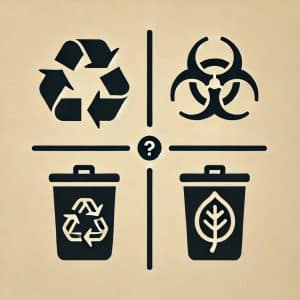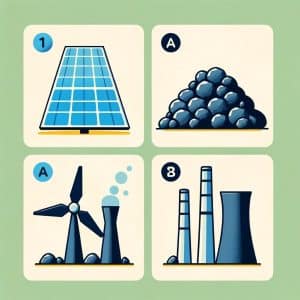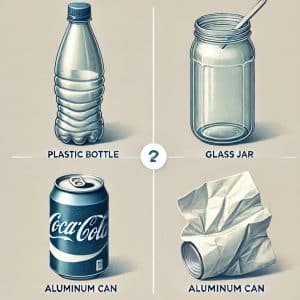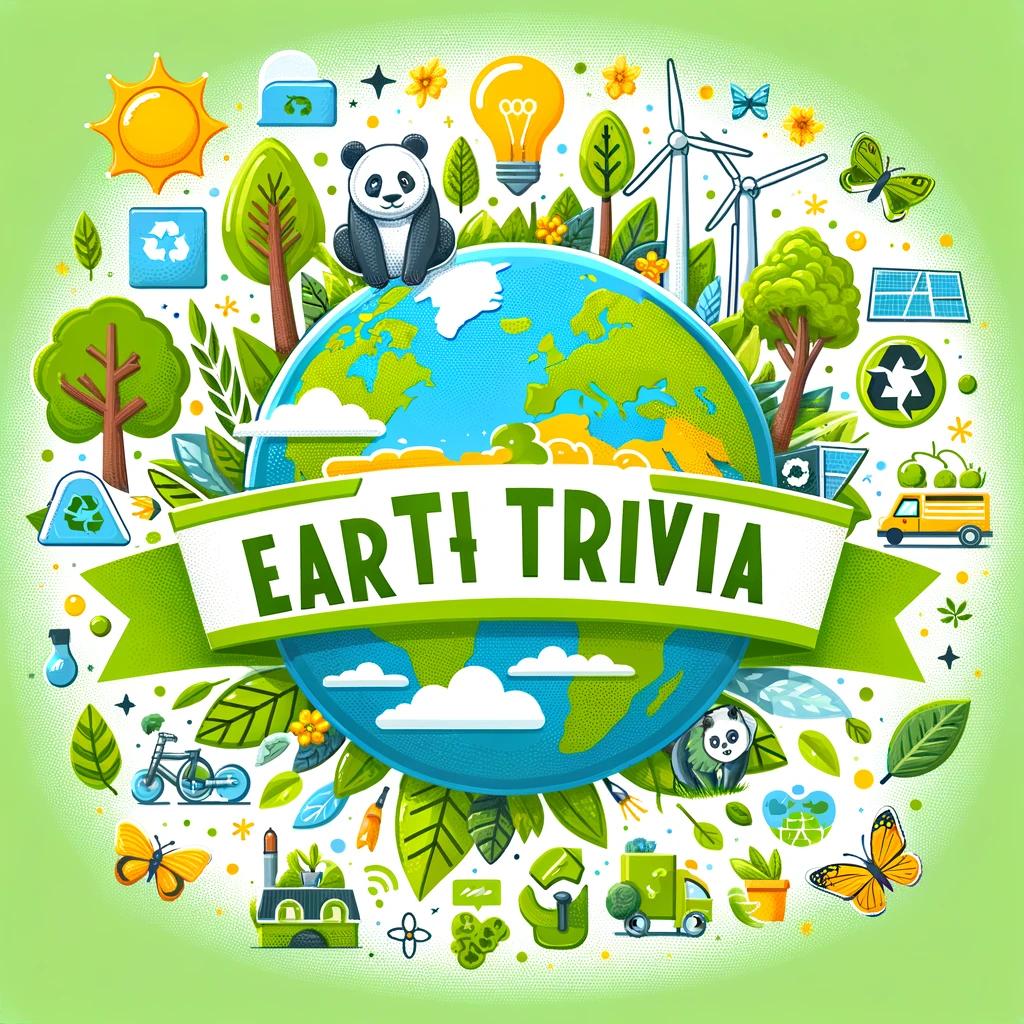Welcome to the Ultimate Earth Day Quiz! Earth Day, celebrated on April 22, brings people together worldwide to appreciate our planet and promote environmental conservation. Test your knowledge of Earth Day, environmental science, and sustainable practices with these 30 engaging trivia questions. Can you score them all? Let’s dive in and find out!
Earth Day Trivia Questions
When was the first Earth Day celebrated?
- A) 1968
- B) 1970
- C) 1985
- D) 1990
Who is often credited with founding Earth Day?
- A) Rachel Carson
- B) Jane Goodall
- C) Gaylord Nelson
- D) Al Gore
What was the primary focus of the first Earth Day?
- A) Marine conservation
- B) Climate change
- C) Environmental pollution
- D) Renewable energy
Which country produces the most plastic waste per capita?
- A) United States
- B) China
- C) India
- D) Germany
What percentage of the Earth’s surface is covered by oceans?
- A) 55%
- B) 60%
- C) 71%
- D) 80%
Which animal is often referred to as the “engineer of the ecosystem”?
- A) Elephants
- B) Beavers
- C) Ants
- D) Bees
Which layer of the atmosphere protects us from harmful UV radiation?
- A) Troposphere
- B) Mesosphere
- C) Stratosphere
- D) Thermosphere
What is the process by which trees absorb carbon dioxide and release oxygen?
- A) Respiration
- B) Decomposition
- C) Photosynthesis
- D) Combustion
Which country has the highest percentage of renewable energy in its power mix?
- A) Canada
- B) Norway
- C) Japan
- D) India
What is the most common type of waste found in the ocean?
- A) Metal
- B) Glass
- C) Plastic
- D) Paper
How many years does it take for a plastic bottle to decompose?
- A) 10 years
- B) 100 years
- C) 450 years
- D) 1000 years
What is “biodegradable” waste?
- A) Waste that can be incinerated
- B) Waste that breaks down naturally
- C) Waste that is recycled
- D) Waste that never decays
Which of these is a renewable energy source?
- A) Coal
- B) Oil
- C) Wind
- D) Natural Gas
Which endangered animal is often a symbol of conservation on Earth Day?
- A) Panda
- B) Elephant
- C) Cheetah
- D) Tiger
What is the biggest threat to biodiversity today?
- A) Habitat destruction
- B) Earthquakes
- C) Tourism
- D) Agriculture
What is composting?
- A) A process of incinerating waste
- B) A process of separating metals
- C) Breaking down organic waste into soil
- D) A way of compacting plastics
What is the most significant cause of global warming?
- A) Volcanoes
- B) Deforestation
- C) Earthquakes
- D) Solar flares
Which country leads in global reforestation efforts?
- A) Brazil
- B) China
- C) United States
- D) Canada
Which natural resource is running out most quickly?
- A) Water
- B) Oil
- C) Iron
- D) Wood
Which of these is not considered a greenhouse gas?
- A) Carbon dioxide
- B) Nitrogen
- C) Methane
- D) Water vapor
What percentage of Earth’s water is fresh and drinkable?
- A) 3%
- B) 10%
- C) 20%
- D) 50%
What does the “three Rs” stand for?
- A) Reduce, Recycle, Redo
- B) Reuse, Reduce, Recycle
- C) Retain, Remove, Reduce
- D) Relocate, Reuse, Recycle
Which of the following is the largest source of renewable energy worldwide?
- A) Solar power
- B) Wind power
- C) Geothermal energy
- D) Hydropower
What phenomenon is responsible for the warming of Earth’s atmosphere?
- A) Greenhouse effect
- B) Plate tectonics
- C) Magnetic field
- D) Solar storms
Which gas is most associated with climate change?
- A) Nitrogen
- B) Helium
- C) Carbon dioxide
- D) Hydrogen
What does “carbon footprint” measure?
- A) Physical waste
- B) Water usage
- C) Greenhouse gas emissions
- D) Forest area
Which international agreement aims to combat climate change?
- A) Kyoto Protocol
- B) Geneva Convention
- C) Paris Agreement
- D) Montreal Protocol
What can you do to reduce water usage at home?
- A) Run sprinklers daily
- B) Take shorter showers
- C) Wash clothes frequently
- D) Leave taps on
Which of these practices helps conserve energy?
- A) Using incandescent bulbs
- B) Leaving lights on
- C) Unplugging unused devices
- D) Keeping electronics on standby
Which day is Earth Day celebrated each year?
- A) March 22
- B) April 22
- C) May 22
- D) June 22
Which of these animals is often a symbol of conservation efforts on Earth Day?

Answer Options:
A) Panda
B) Elephant
C) Tiger
D) Gorilla
Which of these symbols represents recycling?

Answer Options:
A) Recycling Symbol
B) Biohazard Symbol
C) Trash Bin
D) Leaf
Which of these images represents a renewable energy source?

Answer Options:
A) Solar Panel
B) Coal
C) Nuclear Reactor
D) Wind Turbine
Which of these items is the most common type of waste found in the ocean?

Answer Options:
A) Plastic Bottles
B) Glass Jars
C) Aluminum Cans
D) Paper
Conclusion:
How did you do? Whether you aced it or learned something new, every step counts in appreciating and protecting our planet. Remember, Earth Day isn’t just a one-day event but a year-round commitment to making sustainable choices. Share this quiz with your friends and challenge them to match your score!
- B) 1970
- C) Gaylord Nelson
- C) Environmental pollution
- A) United States
- C) 71%
- B) Beavers
- C) Stratosphere
- C) Photosynthesis
- B) Norway
- C) Plastic
- C) 450 years
- B) Waste that breaks down naturally
- C) Wind
- A) Panda
- A) Habitat destruction
- C) Breaking down organic waste into soil
- B) Deforestation
- B) China
- B) Oil
- B) Nitrogen
- A) 3%
- B) Reuse, Reduce, Recycle
- D) Hydropower
- A) Greenhouse effect
- C) Carbon dioxide
- C) Greenhouse gas emissions
- C) Paris Agreement
- B) Take shorter showers
- C) Unplugging unused devices
- B) April 22



